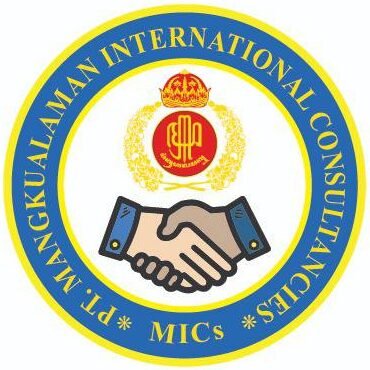2024 Economic Outlook for Indonesia

Indonesia’s economic outlook for 2024 looks positive. The government is committed to fostering a robust business environment, and key indicators and strategic initiatives are expected to drive economic development.
What is the Outlook for Indonesia in 2024?
The economic outlook for 2024 is anticipated to unfold in two distinct scenarios—initial challenges followed by a more favorable landscape towards the end. In Indonesia, economic acceleration is expected to materialize as the government’s transitional processes conclude by the year-end.
According to Bank Indonesia’s projections, Indonesia’s GDP growth is estimated to range between 4.7% and 5.5% in 2024, with inflation hovering around 2.5%±1%.
Furthermore, the e-commerce sector is poised to maintain its growth trajectory, with a projected increase of 2.8% to reach IDR 487 trillion in 2024 and 3.3% to reach IDR 503 trillion in 2025. Secure, seamless, and reliable payment systems underpin the robust performance of digital economic and financial transactions.
The value of digital banking transactions is anticipated to grow by 23.2% in 2024, reaching IDR 71,584 trillion, and by 18.8% in 2025, corresponding to IDR 85,044 trillion.
Opportunities to Capitalize on Indonesia’s Economy in 2024
Despite the challenges, there are plentiful opportunities for businesses to capitalize in 2024; those are:
1. Environmental, Social, and Governance (ESG)
In 2024, there is a chance to enhance ESG (Environmental, Social, and Governance) initiatives. A good ESG rating can help companies secure more extensive funding at lower interest rates, resulting in higher brand recognition and keeping employees and consumers loyal.
2. Renewable Energy Sources and Waste Management
Indonesia has great potential for renewable energy sources such as geothermal, hydro, and solar. A projected annual investment of USD 10 billion in energy efficiency by 2030 indicates a shift from traditional and polluting electricity generation methods such as coal.
Additionally, Indonesia is a significant plastic waste producer, resulting in water pollution concerns. However, startups and initiatives are working towards addressing these issues through innovative solutions.
3. Tourism
Indonesia’s Minister of Tourism and Creative Economy, Sandiaga Uno, is optimistic about the country’s tourism sector in the upcoming year. He predicts that the industry will perform better than in 2023, although it still has a long way to go to return to pre-COVID-19 levels in 2019.
In 2023, Indonesia saw about 11 million foreign tourist visits, which exceeded the target of 8.5 million. The government’s goal for 2024 is to have 14 million foreign tourists visiting the country.
4. Financial Technology and E-Commerce
Indonesia’s financial technology (fintech) sector is well-funded, with about half of 2020’s venture capital investments in payment startups. With over 300 fintech startups, the growth potential is substantial, especially given the popularity of cash transactions and that only half of the population has a financial institution account.
5. Transportation
Indonesia comprises over 17,000 islands, which poses logistical issues for businesses looking to optimize transportation expenses. However, this also creates opportunities for companies to find ways to cut costs.
The demand for electric vehicles is projected to increase significantly, with an estimated 21 million EVs on the road by 2025. The Indonesian government is committed to supporting this sector with a proposed USD 2 billion EV fund to cater to the country’s various transportation needs.
6. Education Technology
Despite having numerous students and educational institutions, Indonesia has a significant gap in upper secondary qualifications, with 42% of 25- to 34-year-olds falling short.
This creates an opportunity in education technology, with estimates suggesting that 113 million Indonesians will need professional retraining by 2030. Entrepreneurs can explore comprehensive courses, online tutoring, or self-learning options to meet this growing demand.
7. Halal Industry
Indonesia is a country where most of the population is Muslim. Due to this, there is a considerable demand for halal products and services. Indonesia has established itself as a significant market for halal goods, and its expertise in areas such as Islamic banking, fintech, and halal goods manufacturing puts it in a favorable position to become a leader in the halal industry.
8. Healthcare
Universal healthcare was implemented in Indonesia in 2014, making quality healthcare a top priority for the nation. This program covers around 86% of the population, providing greater access to medical care and creating opportunities for growth in the medical industry.
However, persistent challenges remain, such as a shortage of healthcare providers and unequal care distribution. The COVID-19 pandemic has led to the adoption of telemedicine, which is especially vital for reaching remote areas. This presents investment potential for digital healthcare.



Leave a Reply